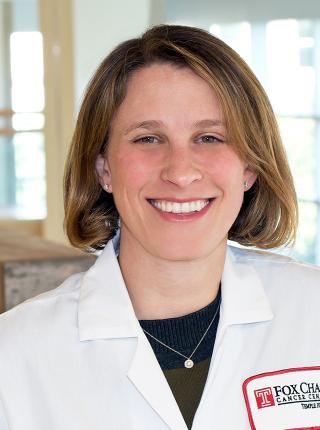The information presented in Oncology News Connection (ONC) eNewsletter is provided for physicians and other healthcare providers only and should not be shared with any current or future patients. If you are not a healthcare provider, we welcome you to sign up for Thrive eNewsletter to receive the latest information and blog highlights from Fox Chase Cancer Center.
By: Efrat Dotan, MD, medical oncologist at Fox Chase Cancer Center and Chair of the NCCN Older Adult Oncology Panel
Cancer is one of the leading causes of death in older adults (closely following heart disease) and older adults are the fastest growing group of cancer patients in the US. Oncologists can expect to be caring for these patients routinely as the population ages and life expectancies increase. The issue is that with no unified approach to diagnosis and treatment, there is not much that is routine about their care.

Older adults require a more holistic approach. Studies show that while many are willing to try new therapies, enter clinical trials, and tolerate side effects, they often value quality of life over quantity.
This changes the conversation. It is vital to understand each patient’s goals, living situation, and how aggressive they want to be, and it’s not enough to talk about survival and recurrence. Personalized medicine is not just about targeting a tumor—it is also about really understanding our patients’ needs.
We know that age is a poor measure for physical and mental fitness. It may seem relatively straightforward to make a judgment about a patient’s condition during an initial examination, but the reality is that without evaluating the functional, psychosocial, and cognitive situation of each patient, we cannot easily predict whether a patient is likely to respond well to standard treatment or become weaker and face toxicities that result in a downward spiral.
Oncologists rarely have time to conduct a comprehensive geriatric evaluation, but we cannot choose appropriate therapy for older adults without first looking at these factors.
The Cancer & Aging Research Group offers specific, easy-to-use tools to assess older patients. This includes a chemotherapy toxicity calculator, along with assessment tools for functional status, social support, and cognition. NCCN guidelines and tools provide a framework for members to assess appropriateness of therapy for older patients.
Prospective studies support the value of assessments in risk stratification. Still, these tools tend to be underutilized, according to a recent Fox Chase study, which found that most community oncologists do not conduct pretreatment geriatric assessments, despite acknowledging the value.1 Oncologists in the study were surprised to learn that hidden impairments existed in 43 percent of their patients and 52 percent of oncologists concluded that they found benefit in the findings of the geriatric assessment. Yet, the challenge in practice remains how to incorporate a thorough assessment of all the important domains into a busy oncology clinic, and how to use the information to adjust treatment. To address this challenge, Fox Chase has ongoing research focusing on how to adjust treatment for older patients with pancreatic cancer and colon cancer.
The oncologist is the medical pivot point for older patients with cancer, guiding the approach to treatment. It has become essential to adopt a 360-degree view of our patients’ goals, co-morbidities, life situation, and other issues that may not relate directly to cancer but clearly affect treatment and survivorship.
Top 3 Things to Keep in Mind
- Expect the number of older patients with cancer to continue growing.
- It is critical to understand each patient’s priorities and performance status in order to optimize their care in the context of multiple and competing health issues.
- Research into improving geriatric assessment tools and outreach to community oncologists who treat most of these patients is needed. It is time to focus on how we can adjust treatments and track the quality of life endpoints and outcomes that are the most important to our patients.
1Dotan E et al. ASSESSMENT and management of older patients with metastatic breast cancer (MBC) among community oncologists in the United States. International Society of Geriatric Oncology, Amsterdam, Netherlands, November 16–18, 2018. Abstract SIOG18-ABS-1360.